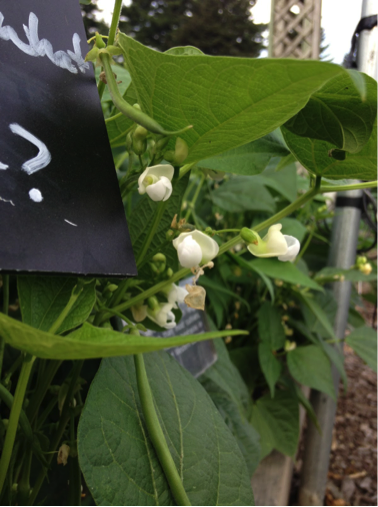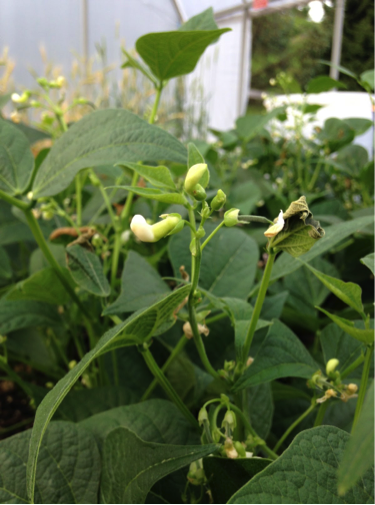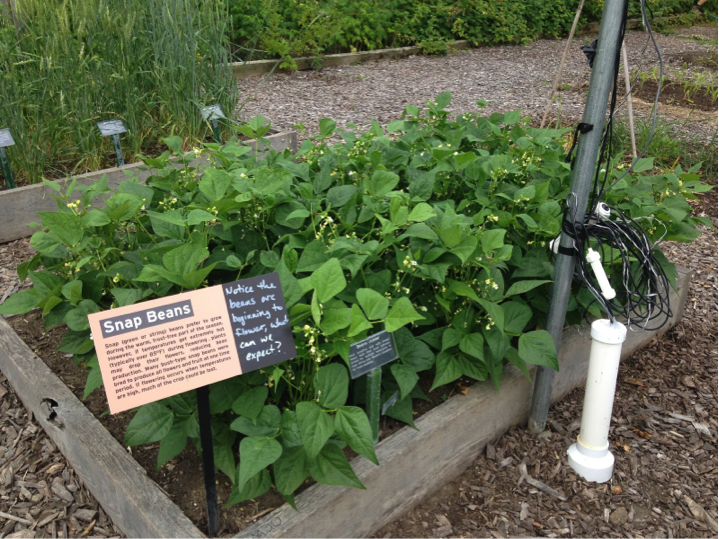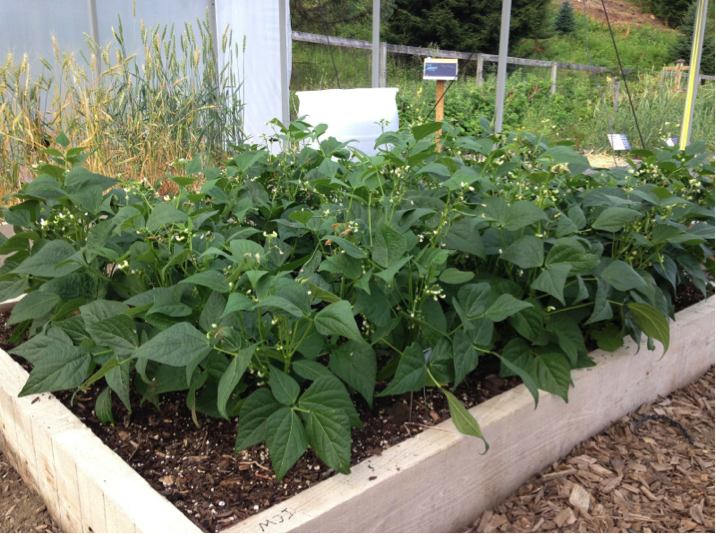Effect of Climate Change on Different Bean Varieties
Friday, July 15th, 2016
According to Emeritus Cornell Botanic Gardens Director Chris Wien, bean plants exposed to high temperatures from approximately a week before and throughout flowering can cause the flowers to drop before producing fruit, greatly decreasing yields. From Thursday July 7th until Friday July 15th, we manually induced a heat wave in the high tunnel, in hopes of replicating early abscission, also known as flower drop. It is too soon to determine how the temperatures during the heat wave affected the plants; however, we can predict that the plants in the high tunnel, where the heat wave was imposed, will produce fewer beans than their counterparts grown outside.
One of the varieties growing, “Jubba”, is fairly sensitive to heat but produces flowers over a long period of time. “Jubba” is typically handpicked in multiple batches in East Africa and Western European for fresh markets. Multiple flowering flushes of “Jubba” make them less suited for mechanical or large-scale agriculture than the other variety we are examining. However, this same quality may also make them less vulnerable to heat waves expected as a result of climate change.


Images: Jubba outside, Jubba inside
The other bean variety, “Masai,” was bred for mechanical or large-scale agriculture. This variety produces all the flowers at once, maturing beans on each plant evenly. All the beans are approximately the same length for the purpose of canning. As extreme temperature events become more common as projected in 2050, a variety such as “Masai” may be more susceptible to flower drop.
Please stop by the garden to see if the heat affects the flowers!
Written by Jessica Barbini (2016 Cornell Botanic Gardens Intern)
Images: Beans outside, beans inside on the last day of the heat wave.











